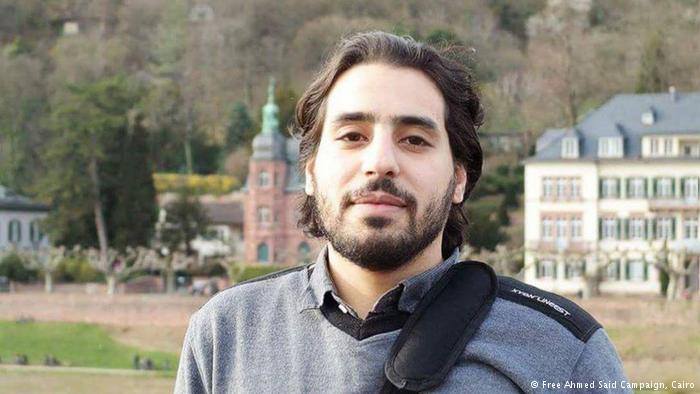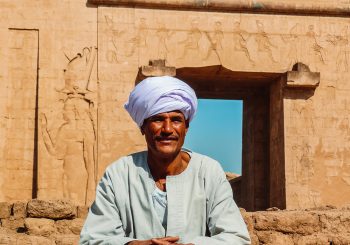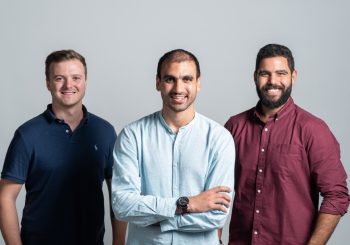Surgeon Ahmed Saied treated wounded protesters in a field hospital in November 2011 during clashes between the military and protesters in Mohamed Mahmoud Street. More than 40 protestors were killed that day. In remembrance, Saied, along with a group of others, held a silent demonstration in 2015.
A few hours later, Saied was arrested from a downtown café on grounds of not having his national ID card, despite having his passport.
Twelve hours of disappearance and denial of his presence in the Abdeen police station left Saied electrocuted all over his body and cigarettes put out on his hands. Later, he was charged with protesting without permission, disrupting public order and blocking roads and was handed a two-year imprisonment sentence.
On Friday, the surgeon and 81 others were released as part of a presidential pardon.
Saied gave Egyptian Streets an exclusive interview, revealing how he spent his days in prison “counting ants,” sharing stories of injustice inflicted upon those in the cell with him, talking about the role media played in his freedom, and discussing protests in Egypt, along with his future plans.
ES: First of all, how did you know you were getting out of prison?
AS: They told us one day before. Of course it was a surprise but also a little bit of a disappointment when I knew that only 82 would be released. Also there was a tone of warning.
ES: What did they warn you about?
AS: They said that we should take care of our families and not to return to what we did before prison because in this case we will be arrested again and this time they will not let us get released.
ES: What is the story of your arrest?
AS: I got arrested in downtown on the 19th of November, after being in a protest for the sake of the political prisoners. But when I got arrested I was just walking with a friend. They stopped us and asked us for our IDs, which I didn’t have. Then they detained us in a small shop for 30 minutes, afterwards taking us to Abdein Police Station. There was a detective there and as soon as he saw me he said, “You are the doctor ha? I will put you in prison, be sure of that.” I still remember the sentence till now and how his facial expression was. It was so strange. Then we got blindfolded and interrogated by the national security, as we assumed from their way of questioning.
ES: What did they ask you during the interrogation?
AS: They asked me about some activists by name and if I have any relation to them. They asked about how we organized for the demonstration, as they were surprised with us that day. They also asked me about my activities in Germany. All the questions were expected.
ES: What happened after the interrogation?
AS: We spent the night at the police station. We did not know what was going to happen with us because nobody knew where we were. They did not even permit me to make a call. The next day we were in front of the public attorney so we knew it will be a case filed against us.
ES: How long did you expect you will be in prison?
AS: I expected all what I heard about other political prisoners. I could not imagine that I could bear it to stay two years in prison.
ES: How are prisoners treated?
AS: It differs from prison to prison and from prisoner to prisoner. For me it was hard at the beginning. I have seen so many bad things but then with the media pressure it was okay.
ES: How did you spend your days in prison?
AS: I counted everything, even the ants on the ground. I had no books, no newspapers and no papers to write. I memorized line by line in order to form poems. On rare occasions I was able to get papers and a pen and was able to write. I also listened to stories of the people with me in the cell. We made chess out of soap to play with.
ES: How many people in the cell with you?
AS: Between nine and 12, in a three-by-three-meter cell.
ES: Can you share some of the stories of the people who were imprisoned with you?
AS: Yes, of course. There was Hesham, who had been sentenced to 15 years because of a demonstration. He has nothing to do at all with politics. He just has a long beard and was arrested because of his appearance in October 2013. There was also a guy who joined the police in attacking a Muslim Brotherhood demonstration. The same day, he got arrested under the pretext that he is a Muslim Brotherhood member. Can you imagine?
ES: If you knew you would go to prison, would you hold the protest again?
AS: I already knew that this might happen. I do not regret it.
ES: Some would argue that there is now a protest law, so what you did was illegal and you all deserve getting arrested. What would you say to that?
AS: I would say this law is not constitutional.
ES: What about those who say that protests hinder the productivity of the country?
AS: I want them to tell me how many demonstrations took place [during] the last couple of years and then tell me how the country is doing.
ES: Do you think we need more protests?
AS: It is not just demonstrations. Demonstrating is just a pressure tool against a settled regime in a democratic country.
We need more than that but it is only what we have. They did not leave any other options; I mean real options, for the people who really aim for change.
I left Egypt to work in Germany. It was not about better conditions, but I got so tired and needed to stay away for a while. However, until the last day for me in Egypt, I was in the street opposing The Muslim Brotherhood regime. But yes, I can say it was escaping.
ES: Are you planning to stay here or go back?
AS: I am planning to return back to Germany
ES: Finally, if they called for protests nowadays, would you go?
AS: The answer may seem stupid for many people, but the answer is yes because I still believe in my dreams and I believe it is my duty not to give up.







Comments (0)